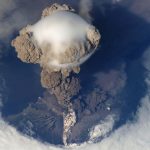 August 6, 2020 8:00 am
Published by Climate Extremes
August 6, 2020 8:00 am
Published by Climate Extremes
CLEX and NCAR researchers explore decade-long variations in global mean temperature that are superimposed on the warming trend and find what can make short term warming trends so unpredictable.
 August 3, 2020 5:05 pm
Published by Climate Extremes
August 3, 2020 5:05 pm
Published by Climate Extremes
Northwest of Svalbard, north of Norway, an area known as Whalers Bay stays ice‐free in winter despite the negative air temperatures. It has been assumed that this open water is maintained by inflow of warm Atlantic Water along Svalbard’s west coast; however, this mechanism has never been demonstrated quantitatively -till now.
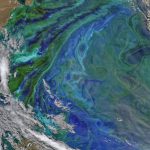 August 3, 2020 4:48 pm
Published by Climate Extremes
August 3, 2020 4:48 pm
Published by Climate Extremes
CLEX researchers used real-world observations with satellite observations to calculate the quantity of nutrients carried into the Subantarctic Zone by mesoscale eddies. They found these eddies carried high nitrate and low silicate waters into the Subantarctic Zone.
 July 13, 2020 2:59 pm
Published by Climate Extremes
July 13, 2020 2:59 pm
Published by Climate Extremes
Picture (above): Beach. Credit: Frank McKenna (Unsplash).
 July 10, 2020 1:10 pm
Published by Climate Extremes
July 10, 2020 1:10 pm
Published by Climate Extremes
Ocean salinity could be an indicator of major rain events before IOD or ENSO events have peaked. This raises the prospect that long term forecasts for Australia could be improved by analysing sea surface salinity in the Indian and Pacific oceans.
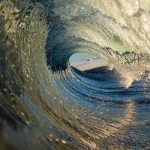 June 9, 2020 3:34 pm
Published by Climate Extremes
June 9, 2020 3:34 pm
Published by Climate Extremes
CLEX researchers find the inclusion of upper South Pacific Ocean variability significantly improved the predictions of ENSO and PDO modes in simple linear inverse models.
 May 18, 2020 11:25 am
Published by Climate Extremes
May 18, 2020 11:25 am
Published by Climate Extremes
Central Europe has recently experienced extreme weather events, so researchers investigated whether this was the result of a weakening jet stream and changes to atmospheric circulation.
 May 18, 2020 11:02 am
Published by Climate Extremes
May 18, 2020 11:02 am
Published by Climate Extremes
Australian researchers assess the ability of recently released climate models to simulate the climate of Australia and the new scenarios for 21st Century climate change.
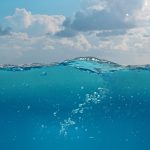 May 13, 2020 10:33 am
Published by Climate Extremes
May 13, 2020 10:33 am
Published by Climate Extremes
By comparing two models, CLEX researchers found that the current generation of convection parameterisations fail to replicate the random, chaotic nature of real-life turbulent convection.
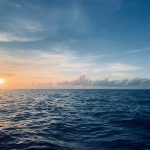 May 5, 2020 9:17 am
Published by Climate Extremes
May 5, 2020 9:17 am
Published by Climate Extremes
All data sources agree that positive IOD events are becoming stronger and occur more often and that the mean-state of the Indian Ocean is moving towards a more positive IOD-like state due to enhanced warming in the west compared to the east.










